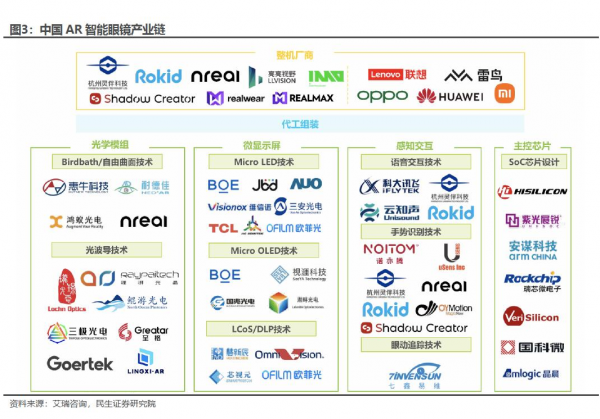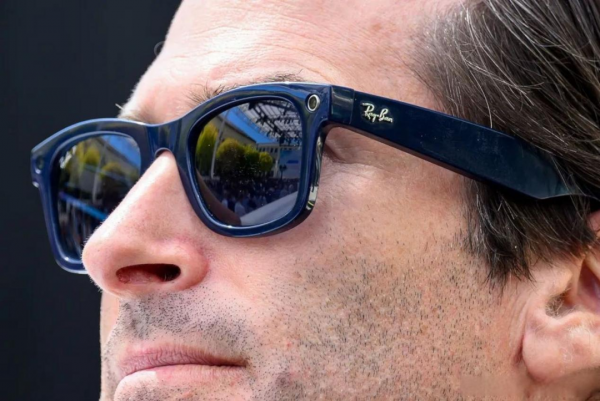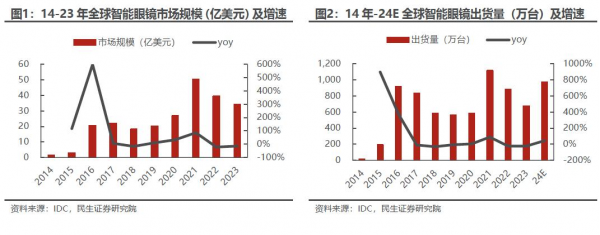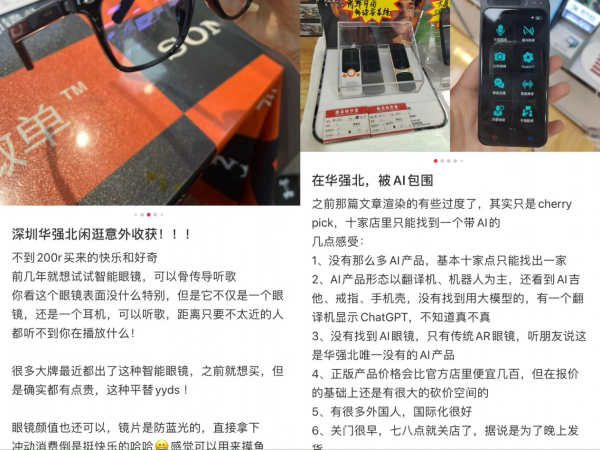AI Glasses: The Next Fashion Staple or Just Another Fad?
![]() 01/02 2025
01/02 2025
![]() 638
638

Image Source: Rokid Official Account
The 'Battle of the Glasses' Heats Up
By Li Xuanqi
Edited by Chen Dengxin
Typeset by Annalee
When envisioning AI glasses today, one often pictures scenarios where these glasses provide real-time foreign language translation directly on the lenses, enabling seamless communication regardless of location. Furthermore, functionalities such as real-time photography, video recording, and navigation are seamlessly integrated into what appears to be an ordinary pair of glasses.
Flashback to 2012, Google Glass, hailed as a 'moonshot' project by Google, made its debut but received a lukewarm reception. It not only failed to sell well but was eventually discontinued in 2015.
Over a decade later, the wind of smart glasses has finally reached China. From Baidu's launch of the 'Xiaodu AI Glasses' in 2024 to Rokid's collaboration with fashion brand BOLON on the 'Rokid Glasses,' and from tech giants like Xiaomi and Huawei to emerging players like LeTV and INMO, at least 50 Chinese companies are currently advancing smart glasses projects, according to public information and industry sources.
As the 'Battle of the Glasses' intensifies, Xu Chi, founder of AR glasses manufacturer XREAL, recently stated in an interview with Economic Observer and other media outlets that current AI glasses are 'AI-impaired glasses,' implying that AI is not the primary driver of consumer demand.
Is the buzz around AI glasses destined to make them the next fashion staple or will they fade into obscurity like so many other trends?
Eager Manufacturers Follow the Same Path
The wave of AI glasses began with Meta. In 2023, Meta collaborated with Ray-Ban to launch the second generation of their co-branded product, Ray-Ban Meta. In April 2024, these glasses added AI functionality, allowing users to activate the smart assistant via voice commands for dialogue operations, with English support.
When AI met glasses, sales skyrocketed. As of May 2024, global sales of these smart glasses have surpassed 1 million units, compared to the initial product, Ray-Ban Stories, which sold only 300,000 units from September 2021 to February 2023, according to VR top data.
Guotai Junan Securities estimated that Meta's glasses shipments may reach 2 million units in 2024. Considering that current AI functionality is limited to users in the US and Canada, if the feature is extended globally in terms of regions and languages, sales could exceed 6 million units.
Consequently, both domestic and foreign manufacturers can no longer sit idle. Baidu and Rokid have successively released AI glasses products, while OPPO, vivo, Huawei, Tencent, and ByteDance are also evaluating AI glasses projects. Apple is also rumored to be organizing a team to study the AI glasses market.

Image Source: AI Large Model Factory
Specifically, in November alone, Baidu unveiled the Xiaodu AI glasses equipped with the ERNIE Bot large model at the Baidu World Conference, with a planned release in the first half of 2025. Introduced as the world's first native AI glasses with a Chinese large model, it weighs 45g and supports translation, note-taking, and features a camera, integrating Baidu Search and Baidu Encyclopedia capabilities to enable users to ask questions on the go.
Subsequently, on November 18, Rokid, a seasoned domestic AR manufacturer, also announced the Rokid Glasses equipped with the Tongyi large model, expected to hit the market in the second quarter of 2025. Co-developed with Bolon, these AI glasses also come with a camera, speaker, and AI large model, enabling functions such as voice announcements, photography, and voice Q&A.
Furthermore, according to 36Kr, Xiaomi plans to launch a new generation of AI smart glasses in the second quarter of 2025 and has partnered with GoerTek. Positioned to compete directly with Meta and Ray-Ban's 'Ray-Ban Meta,' this product aims to capture the high-performance smart glasses market by incorporating AI functionality, audio modules, and camera modules.
In fact, many tech companies have already formed alliances with eyewear companies. For instance, AR glasses manufacturer Thundercomm has partnered with Bosideng Optical to create a Chinese version of 'Ray-Ban Meta.' Xiaomi's ecosystem company, JIEHUAN AI Audio Glasses, has strategic partnerships with Formosa Optical, Baoshida, and Bosideng Optical. Meizu and Yashi Group have also joined forces, while Shanji Technology, iFLYTEK, and LOHO Optics in Shenzhen have officially signed cooperation agreements...
While manufacturers are eager to participate, the inevitable issue of homogenization arises.
Firstly, based on the currently available AI glasses, they can be broadly categorized into two types: those that integrate AI technology into glasses, focusing on AI application, and those that approach from an AR perspective, incorporating AI technology to enrich glasses functionality.

Image Source: Ray-Ban Meta Glasses
Looking at specific functions, most manufacturers' AI glasses are modeled after Meta or follow its lead. Most manufacturers combine 'audio,' 'camera,' and 'AR display' elements. As a result, voice announcements and large model interactions have become basic operations, while real-time AI translation, voice calls, and AR navigation are common features across products.
Is the Current Boom Headed for 'Huaqiangbei'?
According to IDC data, global smart glasses shipments in the first quarter of 2024 increased by over 200% year-on-year, demonstrating the robust growth momentum of the AI glasses market. It is estimated that by 2029, annual global smart glasses sales could reach 55 million units, with a market size of 106.78 billion yuan.
AI glasses are not a new concept. Google Glass, introduced by Google in 2012, was the first to bring smart glasses to the public eye. However, Google Glass was widely criticized: it was more expensive than a smartphone but less functional.

Image Source: AI Large Model Factory
In fact, today's AI glasses still encompass many of the functions of Google Glass—search, navigation, photography, video recording, messaging, phone calls, video chats, etc. However, Google Glass was plagued with issues such as errors in voice-to-text conversions leading to embarrassment, a battery life of around 5 hours that could drop to just 2 hours with extensive photography or videography...
According to the self-media platform 'Dingjiao,' even the well-regarded Meta glasses have numerous bugs. For example, despite having five microphone arrays and amplified speakers, they still struggle in noisy environments. For complex content replies, instead of reading them aloud, the glasses prompt users to check their phones. As a result, some users primarily use Meta glasses as headphones, cameras, and memo pads, limiting their usage scenarios.
Beyond being 'ahead of its time,' the biggest issue with Google Glass might have been its high price tag of $1,500.
Looking at current AI glasses, prices range from 500 to 5000 yuan, depending on functionality. Most domestically released AI glasses are priced between 2000 and 3000 yuan.
Even so, Xinzidu noticed that many netizens on social platforms like Xiaohongshu and Weibo expressed their hope that 'Huaqiangbei will drive down the price of AI glasses.'
However, according to Xinzidu's understanding, while Huaqiangbei has always been at the forefront of tech trends, from mobile phones to earphones, watches, and various accessories, finding genuine AI products here remains challenging.
A previous investigation by 'Lanjing Finance' revealed that while many products claiming to be AI-enabled, such as AI earphones and AI learning machines, are available in Huaqiangbei markets, most are mismatched and belong to the most basic level.
After consulting multiple Huaqiangbei merchants, Xinzidu learned that the 'tech' glasses sold there are typically smart glasses rather than AI glasses. Their main functions include making calls and listening to music, without incorporating AI large models or display screens. Prices usually fall below 500 yuan.

Currently, Huaqiangbei Only Offers Smart Glasses
However, this might just prove that while AI glasses are trending in the industry, their appeal to consumers remains to be validated. If they can truly ignite a trend and become a must-have tech gadget, Huaqiangbei will likely join in to share the pie.
This brings us back to a fundamental question: Do people need AI glasses?
In the Marvel movie 'Avengers: Infinity War,' there's a scene where Iron Man, after leaving the Sanctum and walking through the streets, puts on a pair of black-framed glasses and asks his assistant 'Friday,' 'What am I looking at?' As he removes the glasses with his right hand to transform, they seamlessly integrate into his Iron Man suit.
People's imagination of such tech accessories naturally fuels expectations. Whether people need AI glasses might hinge on whether this time, AI glasses can meet those expectations.






